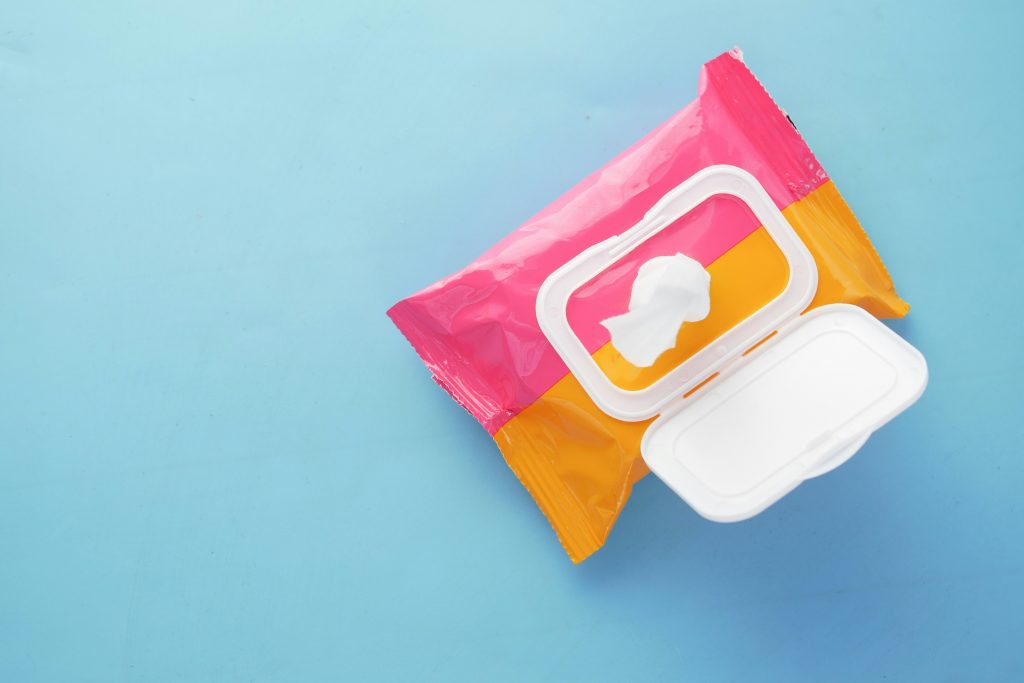
Wet wipes, swabs, and dry gauze play an essential role in healthcare for surface disinfection and patient care. Their use is widespread in the industry, where patient safety and infection control are top priorities. From wound care to personal hygiene, these wipes serve diverse purposes in various settings, offering convenience and cleanliness. Infused with different compounds, they provide the utmost protection from microorganisms and pathogens. According to a report published by ResearchAndMarkets.com, the healthcare wipes market size was estimated at USD 26.82 billion in 2022 and it is expected to grow at a CAGR of 9.08% to hit the USD 53.79 billion mark by 2030.
To meet the evolving needs of the industry, different types of wet wipes are emerging in the market for specific needs and situations. Some common types of medical wipes used in healthcare, along with their respective uses, include:
Disinfectant Wipes
Disinfectant wipes are likely the most widely used wet wipes in the healthcare sector. Saturated with various chemicals like Chlorhexidine, Quats, Hypochlorite, Ethanol, or Isopropyl Alcohol (IPA), these wipes are utilized for various usages like surfaces and medical equipment disinfection and sanitization. They serve as a great alternative to the disinfectant chemicals, making the process hassle-free and avoid cross-contamination. The chemicals used in these wipes kill potentially infectious agents and inhibit the growth of microorganisms.
Intimate Wipes
The intimate area is more susceptible to damage, irritation, and infections. This emphasizes the importance of maintaining hygiene in this area. Intimate wipes are specifically designed to clean, moisturize, and refresh the skin. Made from natural ingredients to prevent irritation, infections, and odours in the intimate area, these wipes leave the skin feeling soft. They are typically free from alcohol, parabens, perfumes, or sulfates to maintain the optimal pH level of the private parts.
Bed Bath Towel
Bed bath towels are one of the most commonly used wipes in the healthcare segment. Pre-saturated with antimicrobial agents like Chlorhexidine, PHMB, etc., these wipes are used for giving sponge baths to patients. The antibacterial properties of the products help kill germs, inhibit the growth of microorganisms and prevent odour, without using water. They also provide long-lasting freshness and a clean feeling.
Shampoo Towel
Just like a bed bath towel, a shampoo towel is a convenient option for individuals who are bedridden and unable to wash their hair. The no-rinse shampoo wipes help wash your hair without water. The thick and extra moisturizing wipes are made of nonwoven spunlace fabric and are enriched with scalp-friendly cleaning agents like aloe vera and glycerine. Cleaning the strands with this wipe removes dust and oil, leaving moisturized and clean hair and scalp.
Baby Wipes
Perfect for the delicate skin of newborns, baby wipes make an ideal companion for daily use and journeys. Made with soft and thick materials, baby wipes are 98%, 99% or 99.9% water-based and enriched with Aloe Vera, Vitamin E, and Jojoba oil. These ingredients help moisturize and maintain the pH balance of babies’ delicate skin.
Eyelid Wipes
Eyelid wipes or sterile wipes help clean the infection-causing microorganisms from the ocular surface, maintaining hygiene and moisturizing them. Enriched with extracts of Aloe Vera, Cucumber, and Vitamin E, these wipes are soft and can be used daily to clean the eyes post-surgery and removing debris.
Wound Care Wipes
Nonwoven dry gauze and swabs are used for wound care and surgical dressings, to clean and disinfect skin post-puncture or pre- and post-surgical procedures. These are more absorbent than cotton, and has low lint. In addition, wound care wipes are cost effective and easy to use.
Choosing the right kind of wipe considering factors such as the intended use, level of disinfection required, and patient’s skin condition is crucial for ensuring effective hygiene and minimizing the risk of adverse reactions. As hygiene and cleanliness takes centre stage in patient care, surgery, and recovery from illness, wet and dry wipes will find increased usage in the medical sector with businesses introducing new products to cover wider functions.
By Gulshan Vohra, Deputy General Manager, Consumer Products Division, Ginni Filaments Ltd.



